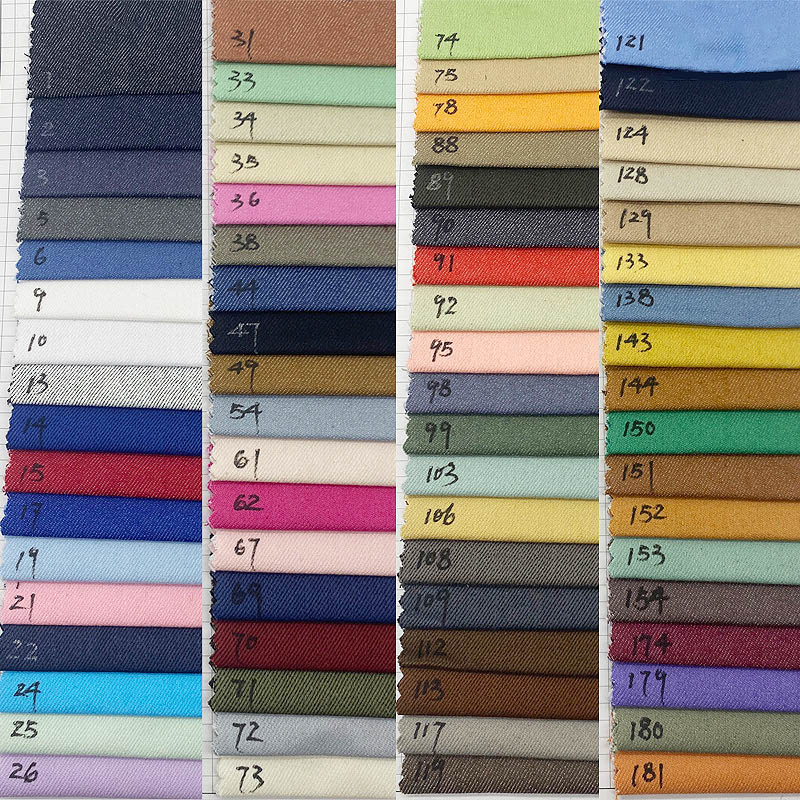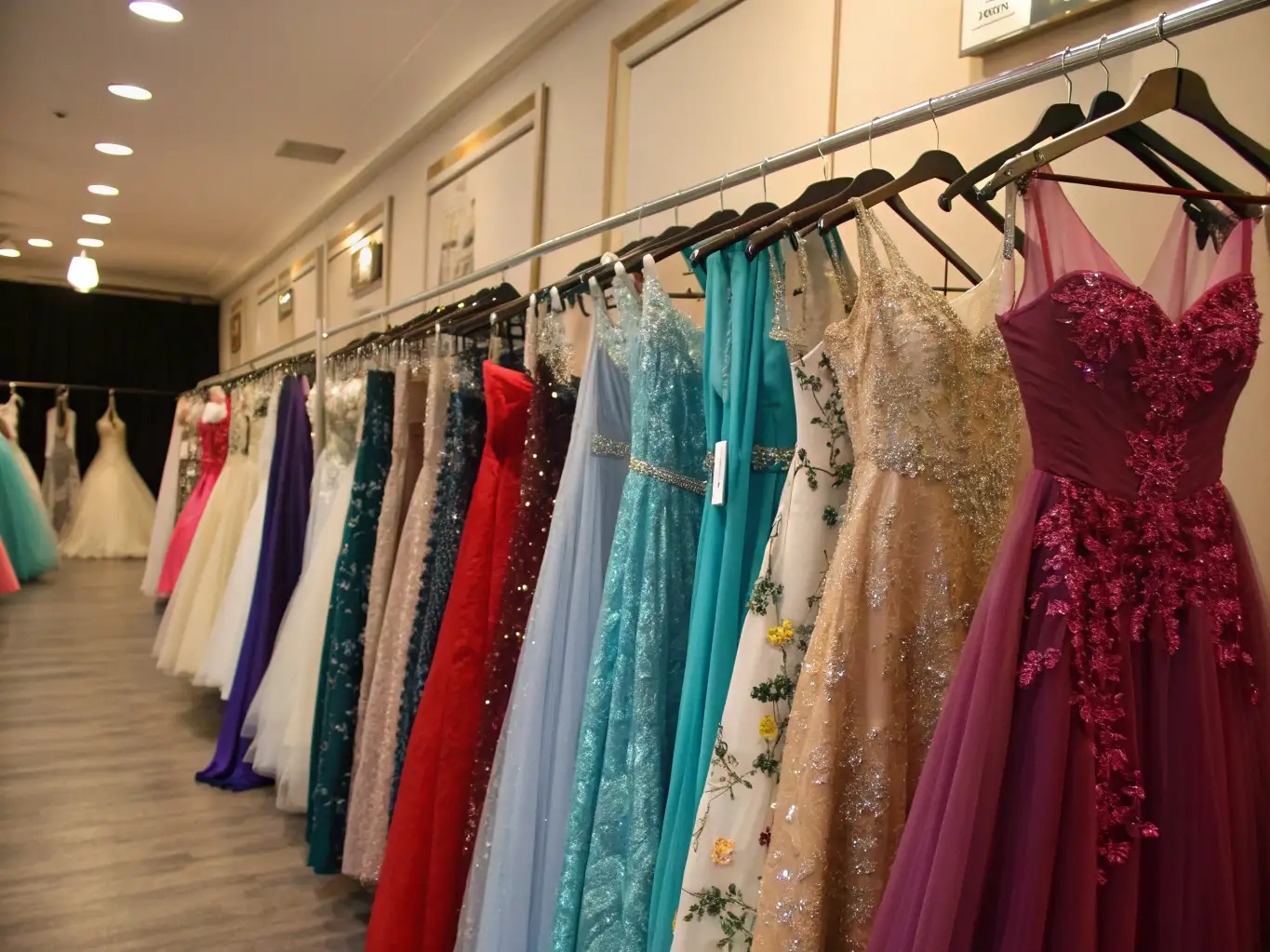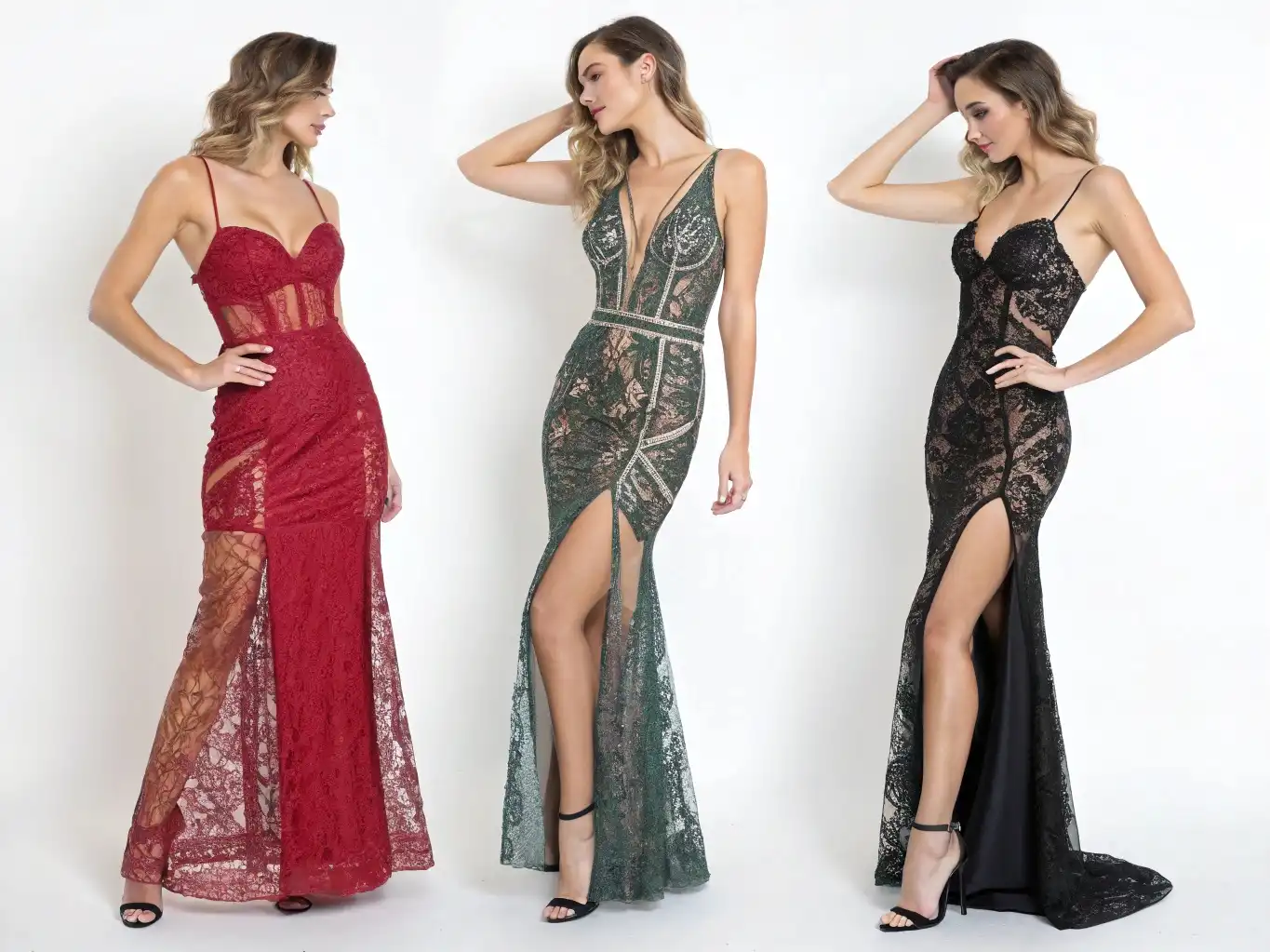Denim Fabric
Our Premium Denim Fabric is a high-quality denim designed specifically for fashion designers and apparel brands. It’s ideal for a wide range of stylish and functional clothing items. Whether you’re crafting classic jeans or trendy denim jackets, this denim fabric is your go-to choice.

Key Features and Benefits
- Superior Durability
- Exceptional Comfort
- Eco-Friendly Production
- Excellent Color Retention
- Unique Finishing Techniques
Product Specifications
- Material: 100% High-Density Cotton
- Weight: 12 oz/sq yd
- Colors: Deep Blue, Light Blue, Black, Gray (Custom colors available)
- Width: 1.5 meters, 50 meters per roll
- Processing Techniques: Shrink-resistant, colorfast, tear-resistant
Difference from Ordinary Fabrics
High-Density Weaving: Our denim fabric uses high-density weaving techniques, providing greater durability and abrasion resistance compared to regular denim.
Advanced Dyeing Technology: Ensures more vivid and longer-lasting colors that don’t fade easily.
Eco-Friendly Materials and Processes: Uses sustainable materials and processes, minimizing environmental impact while ensuring fabric safety and comfort.
Special Surface Treatments: Includes stone washing, softening, and anti-wrinkle treatments, enhancing both the look and functionality of the fabric.
Available clothing types
- blue denim midi dress
- Drawstring turtleneck sleeveless top in medium blue denim
- Sleeveless denim pocket mini dress
- chambray denim dress

Available colors

Application scope
Fashion Apparel Design
- Our premium denim fabric is the top choice for fashion designers, suitable for creating a wide range of denim garments.
- Combines classic and modern styles to create a unique brand identity.
Casual Wear
- Ideal for everyday casual wear, offering both comfort and style.
- Perfect for creating simple T-shirts paired with jeans or fashionable denim skirts.
Workwear
- Suitable for making workwear that requires high durability and strength.
- Provides excellent practicality and safety, ideal for various worksite and outdoor environments.
Frequently Asked Questions
Is this denim fabric suitable for industrial washing?
- Yes, our denim fabric is specially treated to withstand industrial washing while maintaining its appearance and performance. Frequent washing and high-temperature drying will not affect its quality.
Can the fabric be customized in different colors and patterns?
- Absolutely. We offer a variety of customization options, including colors and patterns, to meet your unique design needs. Simply provide your design requirements, and we will tailor it for you.
Does the denim fabric shrink under high temperatures?
- Our fabric is treated to be shrink-resistant, ensuring it retains its original size and shape even under high-temperature washing and drying. Feel free to use it in any clothing design.
How do you ensure this denim fabric is environmentally friendly?
- We use sustainable production processes and materials to ensure the fabric meets environmental standards and is free from harmful substances. Our production process reduces water and energy consumption, committing to environmental protection.
Where can I find more FAQs?
- For more detailed information, please check out our complete FAQs page.
What is denim
Denim fabric is a wardrobe essential that has stood the test of time!
Initially designed for miners and farmers as sturdy workwear, jeans have evolved into an iconic fashion statement suitable for any style.
Denim was first produced in the town of Nîmes in France, but it was the city of Genoa that became a major manufacturing hub. During the Gold Rush, miners needed durable clothing, making denim fabric the perfect choice.
Explore this article to uncover more fascinating facts about denim fabric!
Denim fabric is a renowned versatile material that has been a popular choice for decades. It is celebrated for its distinctive texture, durability, and timeless appeal.
Many people appreciate the way denim develops a faded look over time. It is a favorite for creating jeans, jackets, skirts, and overalls.
Denim is primarily made from cotton fibers, though some variants include synthetic fibers. The characteristic diagonal weave pattern of denim results from the twill weaving technique used in its production.
Discover more about the fascinating world of denim fabric in this article!
The Denim Fabric Manufacturing Process
The process of creating denim fabric involves eight essential steps. Here’s a breakdown of the key stages:
Cotton Selection
The first step in the denim manufacturing process is selecting high-quality cotton fibers. When choosing premium denim, consider factors such as weight, weave, color, wash, and stretch. Evaluate the consistency and tightness of the weave, and select the color and wash that best fits your style.
Carding
After selecting the cotton fibers, the carding process takes place. This step produces a thin layer of cotton fibers known as a web.
Drawing and Roving
Following carding, the cotton fibers undergo drawing and roving to form long, continuous strands of cotton.
Spinning
The drawn cotton fibers are then spun into yarn. This yarn is created by twisting the cotton fibers together.
Dyeing
Once the yarn is produced, it is ready for dyeing. The warp yarns are typically dyed with indigo, while the weft yarns are either left undyed or dyed a lighter color.
Weaving
After dyeing, the yarns are woven together using a twill weave technique to form denim fabric. The warp yarns run vertically, and the weft yarns run horizontally, creating the characteristic diagonal pattern of denim.
Finishing
To achieve a specific look and feel, the denim fabric undergoes various finishing processes such as washing, brushing, and sanding.
Cutting and Sewing
Finally, the finished denim fabric is cut into various patterns and sewn together to create different denim garments like jeans, jackets, skirts, and overalls.
Discover more about the intricate steps involved in the making of denim fabric and appreciate the craftsmanship behind your favorite denim pieces!
Types of Denim Fabric
When it comes to denim fabric, there are various types to choose from. Understanding the unique characteristics of each type is crucial in selecting the one that best suits your needs.
Below is a guide to help you understand the different types of denim.
Pre-Shrunk Denim
This type of denim undergoes a special treatment process where the fabric is stretched and exposed to high temperatures and moisture to set the fibers. This process reduces the fabric’s ability to shrink after washing by up to 1%.
Raw Denim

Also known as dry denim, this fabric has not been pre-washed or pre-shrunk, giving it a stiff and unwashed appearance. Over time, the denim molds to the wearer’s body and develops a unique fade pattern with wear.
Stretch Denim

This denim is blended with a small amount of elastic fibers or spandex, providing a bit of stretch. Stretch denim is commonly used in fitted jeans and other close-fitting garments.
Selvedge Denim
Woven on vintage shuttle looms, this type of denim produces a narrower, tighter fabric with a self-finished edge. Selvedge denim is known for its durability and clean finish.
Colored Denim
This denim is dyed in a variety of hues other than the traditional blue. Colored denim comes in a range of shades, from subtle tones to vibrant neon colors, offering diverse styling options.
Lightweight Denim
Weighing less than 10 ounces per square yard, lightweight denim is perfect for summer clothing as it allows for better air circulation, keeping you cool and comfortable.
By understanding these different types of denim fabric, you can make an informed choice that best meets your style and functional needs.





